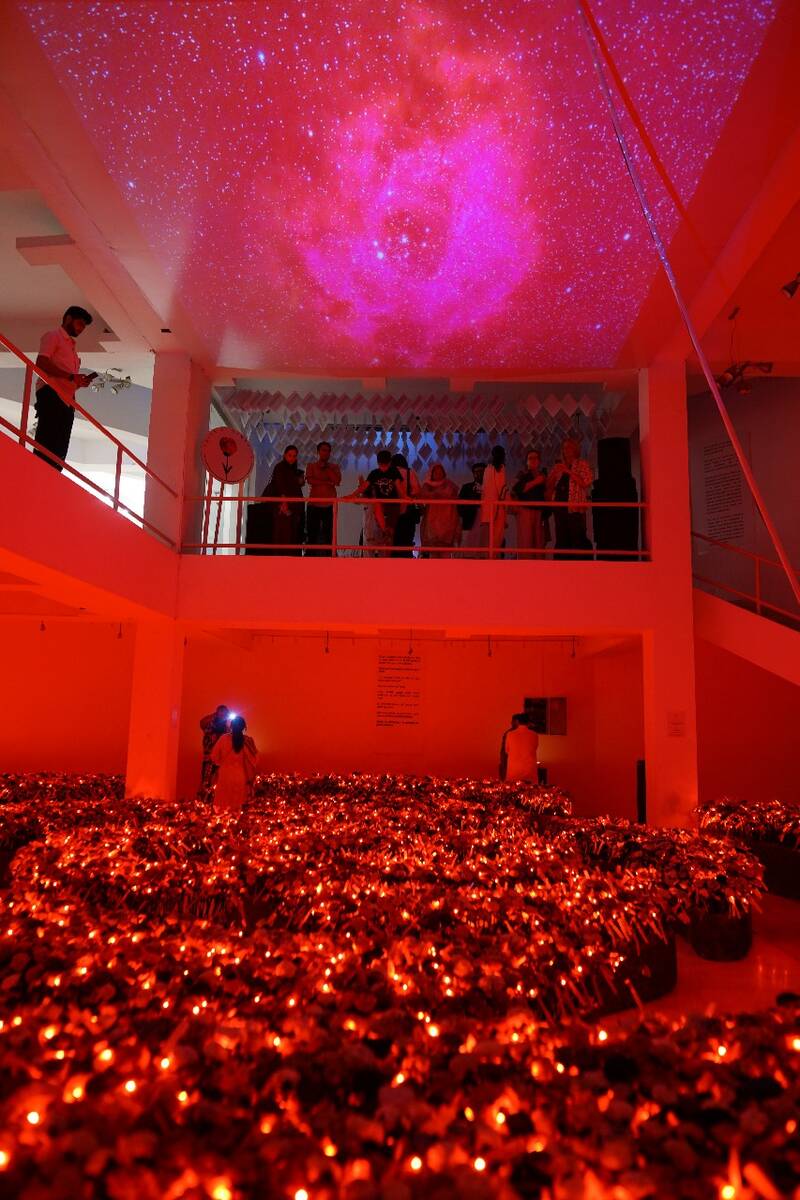ISLAMABAD: Prime Minister Shehbaz Sharif on Tuesday visited the headquarters of Pakistan’s premier Inter-Services Intelligence (ISI) agency where he was briefed on the country’s preparations against a “conventional threat” from India, Sharif’s office said, amid heightened tensions between the two nuclear-armed neighbors.
Relations between the nuclear-armed neighbors have plummeted after India accused Pakistan of backing an attack in Indian-administered Kashmir’s Pahalgam that killed 26 tourists on April 22. Islamabad has rejected the charge and both countries have since exchanged gunfire in Kashmir, taken diplomatic measures against each other, expelled citizens and ordered the border shut.
Indian Prime Minister Narendra Modi has vowed to pursue the attackers “to the ends of the earth” and there have been fears that India may carry out limited airstrikes or special forces raids near the border with Pakistan. The Pakistan military has conducted two missile tests since the standoff, with Islamabad saying it had “credible intelligence” that India was planning to attack Pakistan.
Sharif’s office said his visit to the ISI headquarters entailed a detailed briefing on the prevailing security environment, with a particular focus on preparedness for conventional threat in the light of India’s “increasingly aggressive and provocative posture along Pakistan’s eastern border,” regional developments and the evolving threat matrix, including conventional military options, hybrid warfare tactics and militant proxies.
“The prime minister and accompanying dignitaries underscored the imperative of heightened national vigilance, seamless inter-agency coordination, and reinforced operational readiness to deter and decisively respond to any violation of Pakistan’s sovereignty and territorial integrity,” Sharif’s office said.
“The leadership reaffirmed Pakistan’s unambiguous resolve to defend the homeland against all threats— conventional or otherwise.”
India’s interior ministry has asked several states to conduct mock security drills on May 7 to ensure civil preparedness, a government source told Reuters. They did not say which states or mention Pakistan.
The drills will include air raid warning sirens, evacuation plans and training people to respond in case of any attacks, added the source, who asked not to be named.
Separately, Sharif on Tuesday inaugurated his country’s National Intelligence Fusion and Threat Assessment Center (NIFTAC) Headquarters. It integrates over 50 federal and provincial departments and agencies into a unified intelligence and threat management architecture supported by a centralized national database. At the sub-national level, the platform is linked to six provincial intelligence and threat assessment hubs, including those in Azad Kashmir and Gilgit-Baltistan, to ensure seamless coordination between the federation and provinces.
“This integrated framework is designed to harmonize intelligence gathering, analysis, and operational responses across multiple domains,” Sharif’s office said. “By leveraging the full spectrum of institutional capabilities, NIFTAC will enhance national preparedness, optimize resource utilization, and enable a coherent and timely counterterrorism response.”
Pakistan has witnessed a surge in militancy in its northwest by religiously motivated militant groups like the Pakistani Taliban. The South Asian country has also been faced with a decades-long insurgency by Baloch separatists in its southwest, which has intensified in recent months.
On Tuesday, seven Pakistani army soldiers were killed when their vehicle was targeted by an improvised explosive device in the southwestern Balochistan province, Pakistan’s military said in a statement.
Sharif was accompanied by federal ministers and services chiefs at Tuesday’s inauguration of the NIFTAC headquarters, which will coordinate Pakistan’s national counterterrorism strategy. He commended all stakeholders involved in operationalizing this vital capability and described NIFTAC as a quintessential national platform for collaborative threat assessment and response.
“Dismantling the nexus between terrorism, illicit networks, and external sponsorship requires robust and efficient institutional mechanisms,” Sharif was quoted as saying by his office.
“[NIFTAC] will play a pivotal role in uprooting terrorism and its support structures from the country.”
Pakistan PM briefed on preparations against ‘threat’ from India on visit to ISI headquarters
https://arab.news/mrb38
Pakistan PM briefed on preparations against ‘threat’ from India on visit to ISI headquarters

- Relations between the nuclear-armed neighbors have plummeted after India accused Pakistan of backing an attack in Indian-administered Kashmir
- Islamabad denied the charged and both countries have since exchanged gunfire, taken diplomatic measures against each other and expelled citizens



















